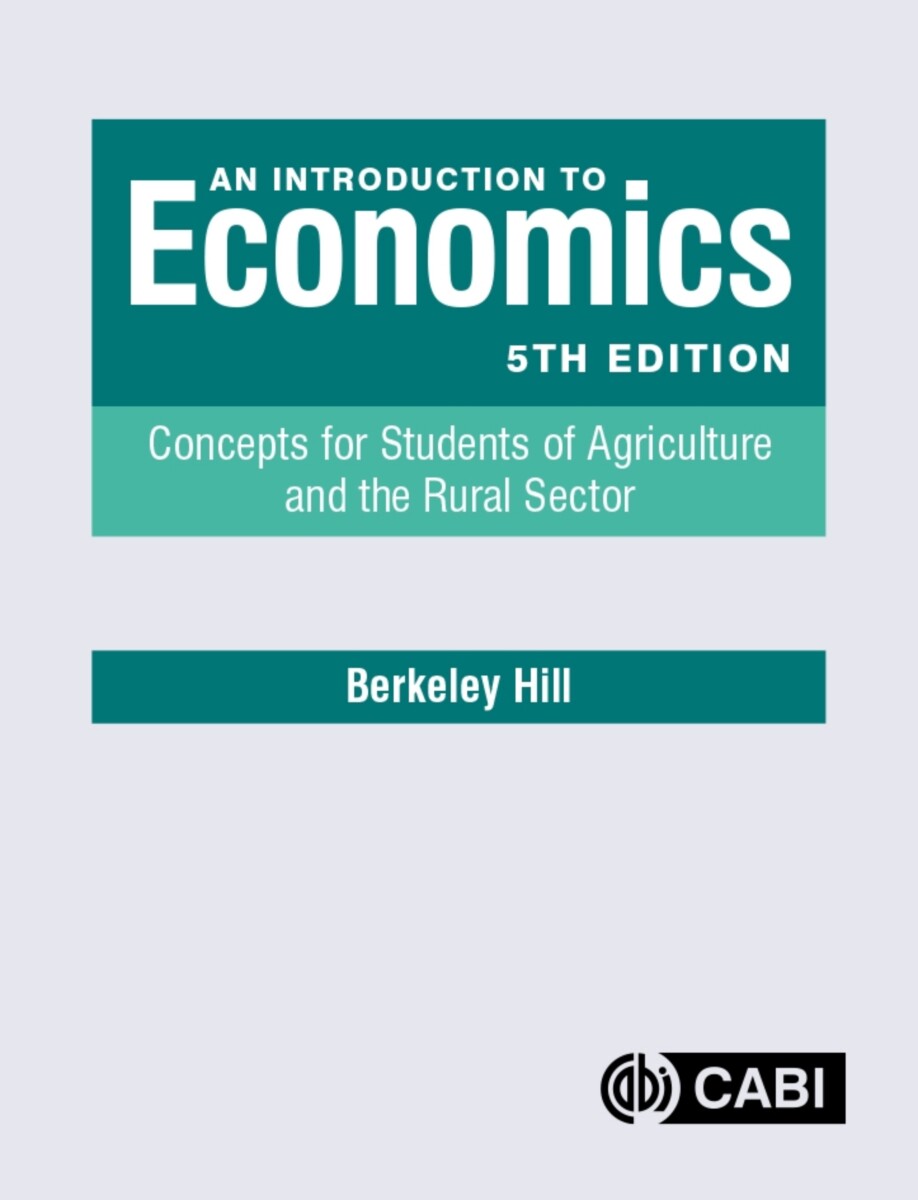An Introduction to Economics Edition 5
Concepts for Students of Agriculture and the Rural Sector
- Publisher
CABI - Published
28th July 2021 - ISBN 9781800620063
- Language English
- Pages 280 pp.
- Size 6" x 9"
- Request Exam Copy
Updated and revised, this fifth edition incorporates recent developments in the environment in which agriculture operates. Issues that have gained prominence since the previous edition (2014) include climate change and agriculture's mitigating role, concern with animal welfare, the social contributions that agriculture makes, risks associated with globalization, and rising concern over sustainability. Important for UK and EU readers are the adjustments needed now that the UK is no longer a member of the European Union and the nature of the national policies developed to replace the EU's Common Agricultural Policy. Containing all the major economic principles with agriculture-specific examples, An Introduction to Economics, fifth edition provides a rounded and up-to-date introduction to the subject. The inclusion of updated chapter-focused exercises, essay questions and suggestions for further reading make this textbook an invaluable learning tool.
This book:
- Is updated to include new developments, such as Brexit, importance of climate change and animal welfare
- Includes exercises and essay questions
- Suggests further reading to supplement the text
1: What is Economics?
2: Explaining the Behaviour of Individuals: Theory of Consumer Choice
3: Demand and Supply: the Price Mechanism in a Market Economy
4: Markets and Competition
5: Production Economics: Theory of the Firm
6: Factors of Production and their Rewards: Theory of Distribution
7: Market Failure: Some Problems of Using the Market to Allocate Resources
8: Macroeconomics: the Workings of the Whole Economy
9: International Trade
10: Government Policy for Agriculture and Rural Areas
Berkeley Hill
Successively from 1970 to 2005 Berkeley Hill held the posts of lecturer, senior lecturer, reader in Agricultural Economics and, from 1999, professor at Wye College (University of London) and, following its merger in 2000, Imperial College London. This involved teaching economics and policy and researching at the interface between statistics and policy. On early retirement in 2005 he was made Emeritus Professor of Policy Analysis by Imperial College London (currently being listed within its Environmental Policy group). In 2008/9 Berkeley Hill was elected President of the Agricultural Economics Society. Since 2005 he has worked as a consultant for the World Bank, FAO, OECD, Department for Environment, Food and Rural Affairs, and the UNECE. He has also worked as part of the AgraCEAS Consulting team (a business part-owned by Imperial College) evaluating aspects of rural development policy in England, Wales and Scotland and in assessing the impact on agriculture of Brexit.


